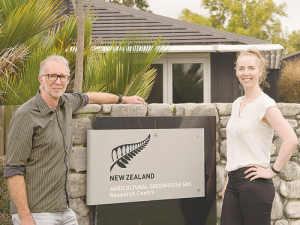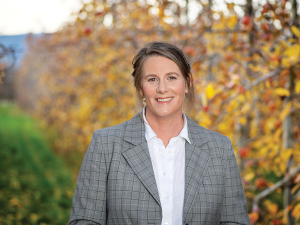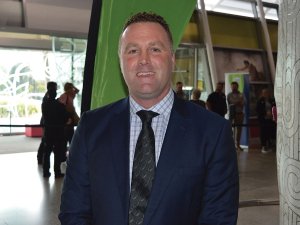The project findings could lead to identifying targets for vaccines and inhibitors to reduce methane emissions and improve productivity.
The project generated a reference set of genome sequences of microbes found in the stomachs of sheep and cattle.
Called Hungate1000, the project was led by former AgResearch scientist Dr Bill Kelly and AgResearch scientist Dr Sinead Leahy. They brought together nearly 60 scientists from 14 research organisations in nine countries, who collaborated to generate a reference catalogue of 501 rumen microbial genomes; before Hungate1000, only 15 rumen microbial genomes were available to the scientific community.
Kelly says the project was named after Bob Hungate, an American scientist who trained the first generation of NZ rumen microbiologists in the 1960s and 1970s.
Kelly says the project gives a new understanding of what exactly is taking place inside a rumen.
“Hungate1000 means we can now start to reveal the intricacies of how the rumen microbial community functions and provides a roadmap for where to take the science next,” he says.
“This data can be translated into interventions that are useful, such as identifying targets for vaccines and inhibitors to reduce methane emissions and improve productivity, among other things.”
Leahy, who is seconded to the NZ Agricultural Greenhouse Gas Research Centre (NZAGRC) as its international capability and training coordinator, says the project represents a major scientific advancement in the field of rumen microbiology, an area of science that until recently had largely been unexplored.
“These microbes in the stomachs of ruminants are crucially important: they convert grass and other dietary components into smaller compounds that the sheep or cow uses to make meat and milk,” she says.
“The data we’ve made available with Hungate1000 will underpin the development of technologies to target these microbes and aid productivity or reduce greenhouse gas emissions; you need to know what you’re targeting to make a specific impact on the rumen microbiome environment.”
Dr Andy Reisinger, the NZAGRC’s deputy director (international), says Hungate1000 is central to the work the NZAGRC is managing.
“Hungate1000 shows what a powerhouse the rumen is in converting digestible plant material to energy, and gives us a much better understanding of how we might be able to use science to influence that process,” he says.
“This will help us find ways not only to enhance productivity but also to achieve emissions reductions and deliver solutions to farmers — such as inhibitors and vaccines — that don’t affect their bottom lines.”
The Hungate1000 was funded by the NZ Government through the Ministry for Primary Industries in support of the Livestock Research Group of the Global Research Alliance on Agricultural Greenhouse Gases (GRA), which is administered by the NZAGRC. The genome sequencing and analysis component of the project was supported by the US Department of Energy’s Joint Genome Institute (JGI), via its Community Science Programme.
















